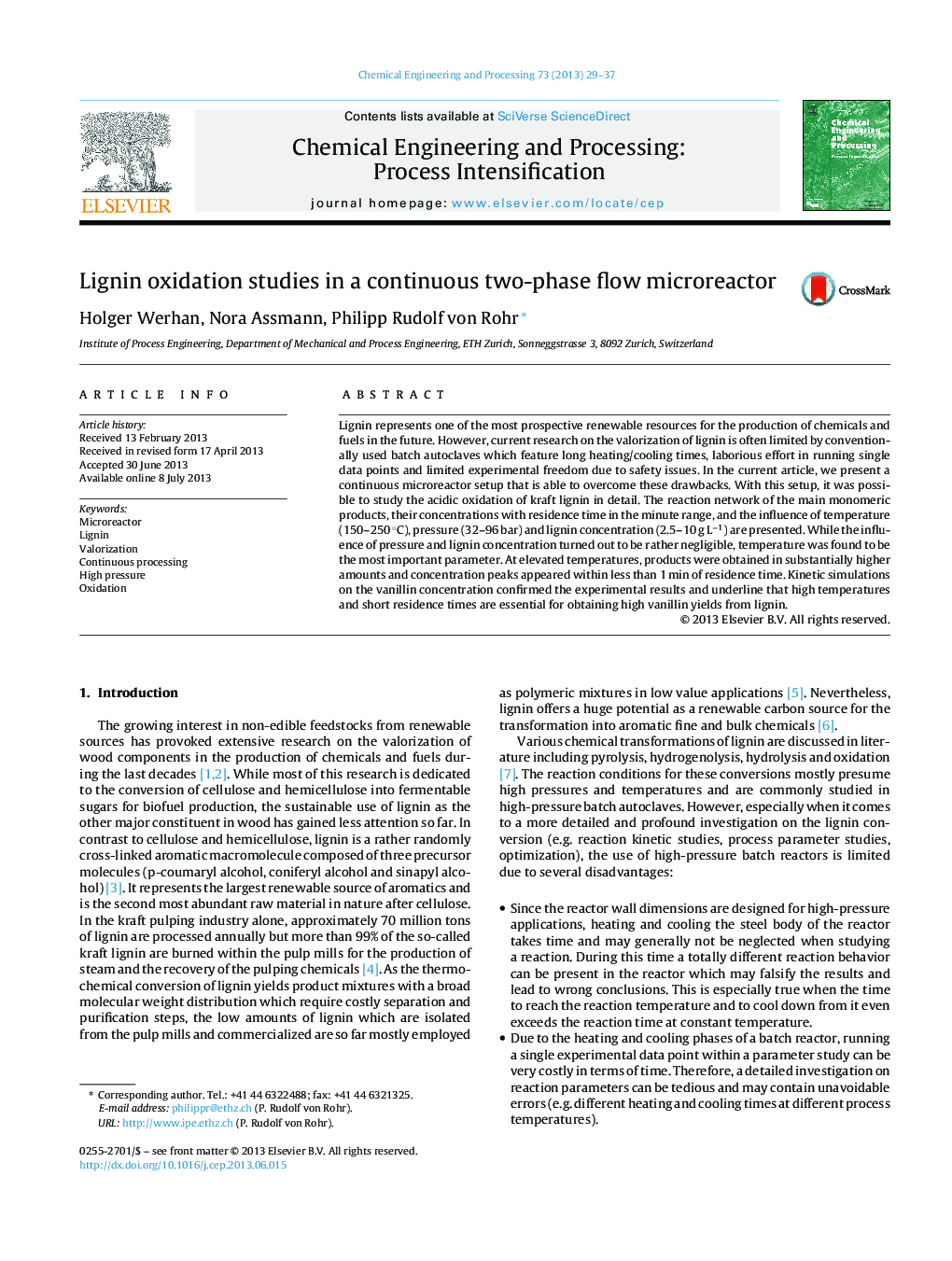| Article ID | Journal | Published Year | Pages | File Type |
|---|---|---|---|---|
| 687075 | Chemical Engineering and Processing: Process Intensification | 2013 | 9 Pages |
•A high-pressure microreactor setup for the continuous lignin oxidation is presented.•Unlike batch autoclaves it features fast heating/cooling and continuous operation.•The reaction network of the main products from softwood kraft lignin oxidation.•A study on the influence of process conditions reveals temperature as most important.•Substantially higher product yields are obtained at high temperatures for RT < 1 min.
Lignin represents one of the most prospective renewable resources for the production of chemicals and fuels in the future. However, current research on the valorization of lignin is often limited by conventionally used batch autoclaves which feature long heating/cooling times, laborious effort in running single data points and limited experimental freedom due to safety issues. In the current article, we present a continuous microreactor setup that is able to overcome these drawbacks. With this setup, it was possible to study the acidic oxidation of kraft lignin in detail. The reaction network of the main monomeric products, their concentrations with residence time in the minute range, and the influence of temperature (150–250 °C), pressure (32–96 bar) and lignin concentration (2.5–10 g L−1) are presented. While the influence of pressure and lignin concentration turned out to be rather negligible, temperature was found to be the most important parameter. At elevated temperatures, products were obtained in substantially higher amounts and concentration peaks appeared within less than 1 min of residence time. Kinetic simulations on the vanillin concentration confirmed the experimental results and underline that high temperatures and short residence times are essential for obtaining high vanillin yields from lignin.
